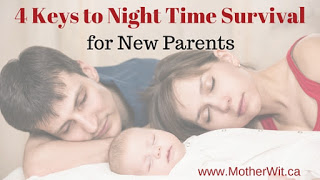
The Gap Between a Baby’s and a Parent’s Sleep Needs
As a certified infant sleep educator, the more I develop my Sleep Essentials workshops and the more I talk about this work in my community, the more apparent it is that those who work in this field need to tread with exquisite care of the Parent Soul. Nobody is at the receiving end of unsolicited advice more than new parents, and this can erode confidence and lead to stress. Taking an encouraging and nurturing approach rather than one wrought with opinion and judgement keeps our minds open to what support parents are really yearning for.
Babies are primal. Nobody has told infants that the Industrial Revolution took place and radically shifted the way human beings sleep. They didn’t get the memo that independent sleep is something that is wanted of them because of the busy daytime work schedules of their parents and the fact that we don’t live and work tribally anymore. Babies seem to want more from us around the clock than often feels sustainable to give. This is their primal nature. It has been their way for longer than we can say.
Parents are modern. Most of us are enculturated to the relatively new 9-5 work schedule the world tends to revolve around now. We were raised that way. And, as culture does shape us biologically, it makes sense that parents need to fit their sleep into a 7-9 hour period sometime between the punch out and punch in, not to mention get a little space to breathe after their day job duties, whether they are working outside of the home or working in the home doing business or tending to children).
Families are tired. Oh, are they ever tired. As a mom of four children who glued themselves desperately to my body every time I tried to extricate my arms from our embrace, I know this well. There were times I lay in bed with a toddler clamouring for my breast for the 14th time that night, wondering if I should “Ferber-ize”, worrying about how I was going to face the day on no sleep. I wanted to run away from this insane feeling dynamic that appeared terribly broken, and clearly all my fault for creating such a clingy, dependent little person (cuz mom guilt).
So where does the proverbial ‘twain meet? In this wide gap between a primal baby’s and a modern parent’s needs, where does a sane solution lie to the very real problem of family exhaustion?
There are lots of people wanting to tell you. There are many approaches, counter approaches, studies and rebuttals, experts and proselytizers wanting to shape you with their two cents. How do we discern the correct approach for our unique families? How do we get our needs met and be great parents too? What is the “right” thing to do?
Let us look at different sleep approaches. There are classic sleep training methods, which are about conditioning a baby to stop crying out for their parents when it is time to sleep. While the intention is to fulfill a biological and psychological need for more family sleep, the approaches are rooted in Behavioural Psychology. It makes very logical sense. If your baby cries for you after a certain time, you know they aren’t hungry or wet, it may just be a cuddle or nipple “habit” that motivates the “calling out” behaviours. In which case, habits can be changed. Methods are implemented over time, generally involving some to a lot of crying from your baby in protest. But for a good many parents, the few nights of howling and distress (as much as they hate it), feel worth it for the sake of more sleep for everyone, more family harmony, and a sense of shaping good sleep “manners”. Of course that sounds appealing!
The shadow side of some sleep training approaches? They are often sold as something necessary and expected to do (or else Baby will be spoiled), mired more in cultural biases than scientific evidence, create more family stress than we anticipate, and according to some studies, have a low long term efficacy rate. Despite possible misgivings at letting their babies cry-it-out, parents will often resort to anything that might work, and sleep training is logical. Not a parent in the world can be blamed for wanting to try something that could work.
We have the Attachment Parenting approach, which is rooted in Developmental Psychology, and is all about heeding that natural call for connection babies have around the clock well into early childhood. Proponents refer to the difficult biological implications of the unmet distress in a rapidly growing little brain and advocate not allowing babies to cry it out as a means of learning sleep hygiene. When looking at the workings of a baby’s brain and their reasoning capabilities (or lack thereof), it also makes perfect sense why we would NOT want to discourage attachment and the tending to a baby’s cries rapidly in the night.
The shadow side of a fully baby-led attachment approach within a culture of social isolation? Babies will, left to their own devices, very often nurse or want cuddles multiple times throughout the night well into toddlerhood. While it may be developmentally normal and security building, if the family is chronically sleep deprived, this is a remarkable burden upon relationships and health which can ultimately detract from that security. “Our culture is messed up, not our babies.” may be true from a sleep evolution perspective, but it doesn’t solve the problem of meeting the family’s crucial need for more rest to function in today’s very real world.
With all the information out there, it feels damned if we do (have babies who don’t cry for us but who may be in cortisol driven “shut down” rather than “self-soothe” mode after nights of prolonged crying it out) and damned if we don’t (having babies who cry to be rocked, cuddled, and nursed multiple times at night when we have to work the next day, maybe ‘til well past the age of two, rendering everyone frustrated, exhausted, and edgy).
What the heck do we do?!
Firstly, education and preparation while still pregnant or in the early days of parenting is one of the best ways to get ready for the reality of an infant’s sleep needs. Dissonance occurs when our expectations don’t meet our reality. So understanding how Baby’s brain functions at different levels of development is very helpful, as well as things you can do to create wonderful sleep associations for Baby right from birth. Advice to take whatever information you like, leave the rest, and do what feels right for your family is an approach you might want to look for when seeking your educational resources. Making informed choices feels empowering, and that’s a good feeling for new parents.
In this wide gap between the needs of primal babies and modern parents, MotherWit Sleep Essentials stands with Empathy (this is one of the three “E”s of our GoToSleeep Principles). Why? Because it’s vulnerable there. We know with certainty that every parenting decision made in regards to sleep is and has always been done with the utmost care and concern. This will always be assumed. People who sleep train their kid aren’t harsh or callous any more than people who are nursing 10 times per night aren’t pushovers raising an adult who will still be in their bed until college. Parents fear being all those things and yet none of them are true. We know well that constant battle between the heart and mind and witness it as an expression of your tender parental love. We have been there too.
So how can we help? By not judging you, for starters. We take a compassionate look at the sleep needs of a family holistically, checking in on things like diet, stressors, routines, levels of self-care, emotional well being and the home layout. With this information and “making changes” coaching, we create customized strategies that promote better rest which include cool things like shaping neural pathways with multi-sensory input. By respecting and caring deeply about a baby’s primal needs AND the modern parent’s needs, we have learned that balance and flexibility are the keys to unlocking sleep potential.
MotherWit Sleep Essentials provides information on the science of infant sleep and support for the art of parenting.
Sleep well, Gentle Parents.
Love,
Lesley

